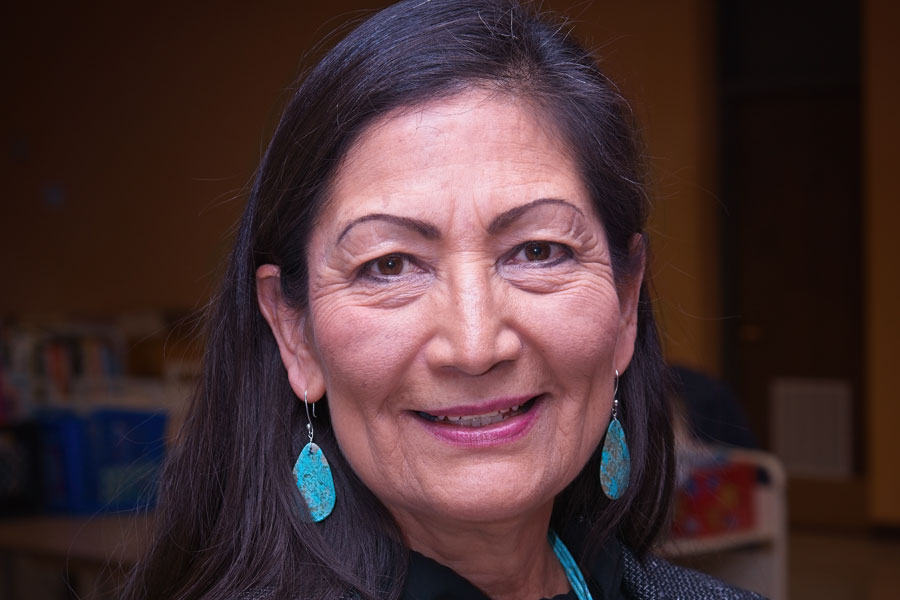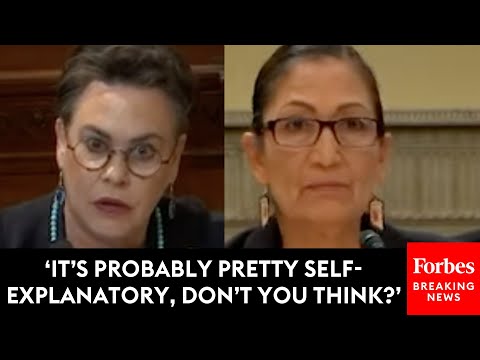Interior Secretary Deb Haaland Unable to Answer Basic Questions About Her Job; First Native American Cabinet Secretary in U.S. History

WASHINGTON, D.C. – Debra Anne Haaland serves as the 54th United States Secretary of the Interior in the Biden Administration. She was nominated for the position by incoming President Joe Biden on December 17, 2020, and upon her successful confirmation she became the first Native American Cabinet Secretary in U.S. history.
The U.S. Department of the Interior oversees management and conservation of most federal lands and natural resources, and as a result the agency has a great deal of impact upon decisions that sgape energy policy, including the issuing of coal, oil and gas leasing on public lands. (https://miedemaproduce.com
However, Haaland – a Democrat – raised serious issues about her qualifications and experience in regards to her post during a House Natural Resources Committee hearing in April, where she found herself unable to answer even basic questions about her job asked of her by Rep. Harriet Hageman (R-WY).
When Hageman asked if any new coal leases or lease modifications had been approved under her leadership, a stammering Haaland was unable to give an answer.
“I couldn’t say which projects have been approved or permitted and which haven’t,” she said.
Hageman also put Haaland on the spot with a question about “energy poverty,” which occurs when energy bills represent a high percentage of consumers’ income, or when they must reduce their household’s energy consumption to a degree that negatively impacts their health and well-being.
Haaland, however, replied she didn’t understand what the GOP congresswoman meant.
“I don’t know the term, ma’am,” she said.
“You’ve never heard of the phrase ‘energy poverty?’” Hageman asked.
During the exchange, Haaland mentioned that, as a single mother, she herself had been forced to choose between paying rent, her student loans, or her gas bill. As a result of her experience, she noted that she is working with the Biden Administration to help make energy more affordable.
“That’s why we’re moving forward on clean energy,” Haaland said.
“If that’s the case, coal is an affordable energy, isn’t it? It has been for decades,” Hageman countered, but Haaland was unable to answer if coal, oil, or gas utilization were indeed “affordable” sources of energy, and would not comment on if they were part of her department’s plan for making energy more cost-effective for Americans.




Comments are closed.